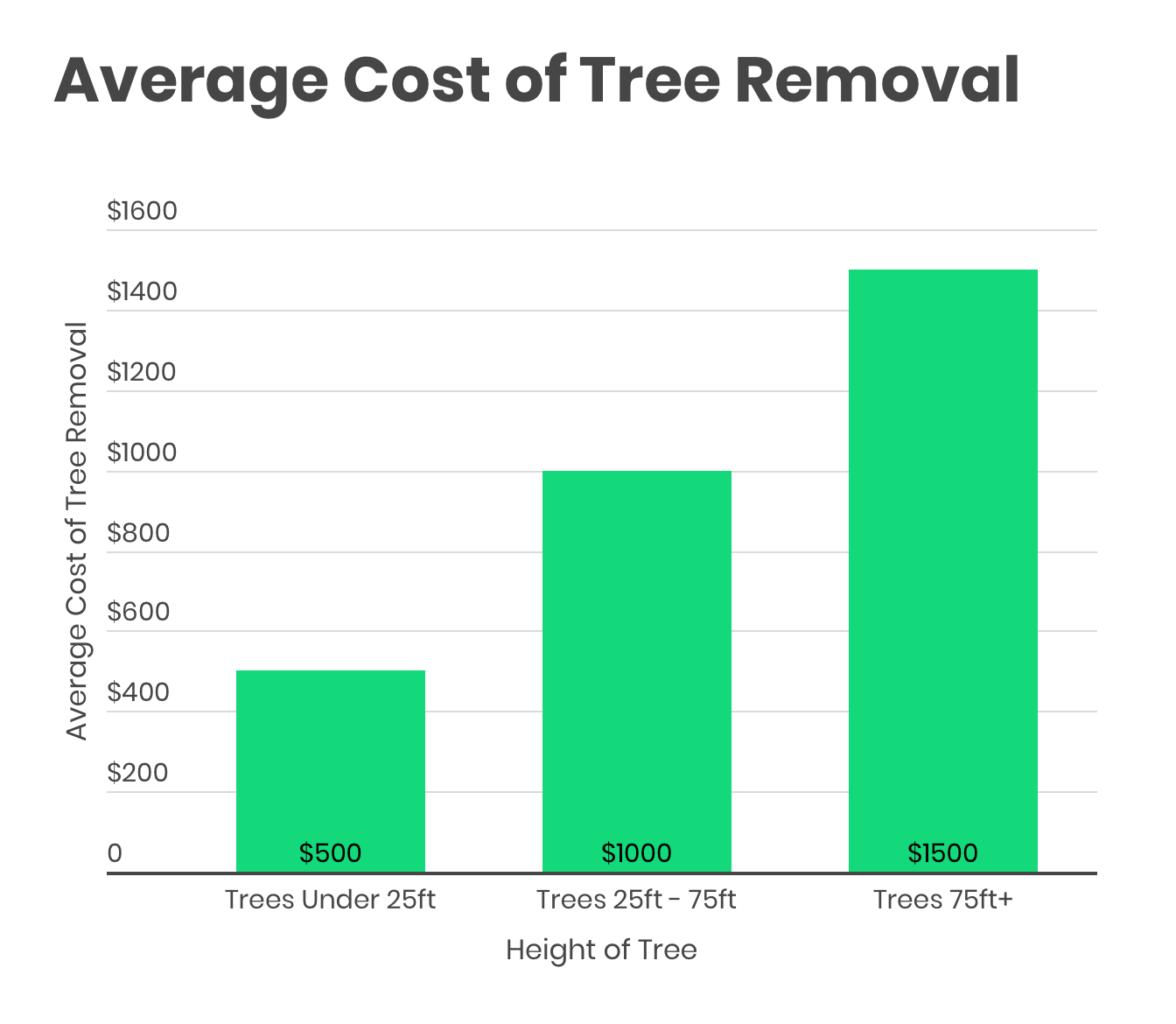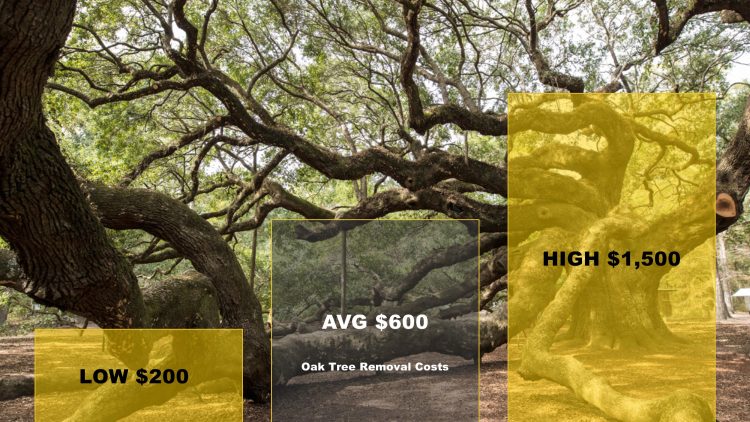Featured
Table of Contents
- – Residential Stump Removal Costs In Bartonville...
- – Selecting The Right Tree Service In Bartonvill...
- – Review Local Tree Service Prices In Bartonvil...
- – DIY Vs. Professional: Tree Clearing In Barton...
- – Bartonville, IL Arborist Cost Models
- – Compare Arborist Prices In Bartonville, IL
- – Bartonville, IL Tree Clearing Evaluation Costs
- – Bartonville, IL Tree Removal Market Prices
- – Bartonville, IL Stump Grinding Pricing Struc...
- – Green Stump Grinding Costs In Bartonville, IL
- – Highly-Rated Stump Removal In Bartonville, I...
- – How Much Should You Pay For An Tree Clearing...
- – Top Value Arborist In Bartonville, IL
- – Tailored Tree Service Costs In Bartonville, IL
- – Bartonville, IL Stump Grinding Budget Calcul...

The subsections below supply more detailed details about rates, including an average range for each. TypeAverage Removal CostPineConiferPalmMagnoliaArborvitaeAshCedarSweet GumEucalyptusSycamoreCypressOakMaplePoplar You can anticipate to pay between to remove a pine, depending on its size. Eliminating a pine is among the more budget friendly jobs unless it is one that has actually been around for several years and is rather large.
Residential Stump Removal Costs In Bartonville, IL
Pines likewise have a tap root that grows deep into the soil, which can show to be more tough to remove. The process itself involves an expert cutting the tree, clearing the base, cutting the surface roots, getting rid of the stump, and lastly dealing with the soil. Without an expert hand, you risk leaving pine seedlings behind, which will fall from the roots of distressed pines.
Selecting The Right Tree Service In Bartonville, IL: Price vs Quality
The U.S. nationwide average for conifer removal is roughly to have the conifer lowered, transported away, and the stump ground or removed totally. Conifers are normally much easier to remove, and although they can grow rather high, they do not cost a fortune to remove. Conifers consist of pine, spruce, fir, and juniper trees.
Review Local Tree Service Prices In Bartonville, IL
While conifers are gorgeous, they eliminate native plants and specific types of lawn (stump grinding). The typical price of palm removal depends on the height as much as the type, varying from.
DIY Vs. Professional: Tree Clearing In Bartonville, IL
That is why it is necessary to understand which type you are removing. While you do not need an herbicide to eliminate a palm tree, there are some steps your removal expert will need to take to ensure the job is done correctly. There are two methods they can get rid of them: by chopping them down or digging them up.
Bartonville, IL Arborist Cost Models
This is since small animals like rats and scorpions typically reside in them. Plus, numerous types will have spikes, too. From there, they get rid of the real tree and after that the stump. Expect to pay between to remove this kind of tree, depending on the exact size and details of the task.
Compare Arborist Prices In Bartonville, IL
There are three types: green, white, and black ash. With its gray-tinged bark, its leaves are green or purple in the spring and golden yellow or purplish-red in the fall.
Bartonville, IL Tree Clearing Evaluation Costs

However, the bark is softer, and it flowers later on in the year. Due to the variation in height, the removal rate variance is large from. A coniferous, evergreen tree, the cedar is a sturdy species. Real cedars take pleasure in greater altitudes, mainly in the Himalayas and the Mediterranean. A real cedar can grow as high as 160 feet in height and is typically planted in the United States as a landscape alternative.
Bartonville, IL Tree Removal Market Prices
The growth of incorrect cedars varies from 50 feet up to 230 feet high. With star-shaped leaves and sensational fall colors, the sweet gum is thought about a medium to large tree.
Bartonville, IL Stump Grinding Pricing Structure
It has a big root base of 40 to 50 feet, which impacts the elimination cost. Usually, it costs in between to get rid of a eucalyptus. Eucalyptus are not common everywhere, but they are rather large compared to others, which is why even the smaller ones are so expensive to get rid of. Originally from Australia, eucalyptus are intrusive plants that grow in thick groves that take out native plants.
Green Stump Grinding Costs In Bartonville, IL
There are a handful of methods to do this, including burning, pulling, grinding, or eliminating them with herbicide. Expect to pay between to remove sycamores, based on the height, trunk size, and amount of work included. Sycamores are among the biggest hardwood trees, typically ranging from 60 to 100 feet tall and as broad as 15 feet.
Highly-Rated Stump Removal In Bartonville, IL: Pricing
The very first two steps will expose the withins of the tree and cut off the flow of nutrients up the trunk. From there, an expert uses herbicide to eliminate the tree and cuts down the trunk.
How Much Should You Pay For An Tree Clearing In Bartonville, IL
There are several types of Cypress trees, but the most common are the Leyland, Arizona, Bald, and Italian. The Bald Cypress grows in swampy or extremely wet locations while the others delight in a dry, warm, or hot climate (tree service). They can grow as tall as 80 to 100 feet tall
Top Value Arborist In Bartonville, IL

Prone to illness, the Cypress is one of the most prized woods for furnishings. The average oak grows to around 60 feet, and depending upon the complexity of the elimination, it costs approximately to get rid of. The precise size of your oak and the effort needed to fell it impact what you will really pay for elimination in addition to any extra services like stump grinding.
Tailored Tree Service Costs In Bartonville, IL
Access to the trees and the roots will likewise affect the general cost. Maples are usually among the more costly trees to eliminate because of their size and the work involved in the elimination.
Bartonville, IL Stump Grinding Budget Calculator
Growing as high as 90 to 115 feet, these huge timbers are mainly discovered in North America and include the aspen, cottonwood, and balsam trees. The procedure to eliminate trees involves all the cutting and cutting of the branches and trunk, bringing it down to a stump.
Table of Contents
- – Residential Stump Removal Costs In Bartonville...
- – Selecting The Right Tree Service In Bartonvill...
- – Review Local Tree Service Prices In Bartonvil...
- – DIY Vs. Professional: Tree Clearing In Barton...
- – Bartonville, IL Arborist Cost Models
- – Compare Arborist Prices In Bartonville, IL
- – Bartonville, IL Tree Clearing Evaluation Costs
- – Bartonville, IL Tree Removal Market Prices
- – Bartonville, IL Stump Grinding Pricing Struc...
- – Green Stump Grinding Costs In Bartonville, IL
- – Highly-Rated Stump Removal In Bartonville, I...
- – How Much Should You Pay For An Tree Clearing...
- – Top Value Arborist In Bartonville, IL
- – Tailored Tree Service Costs In Bartonville, IL
- – Bartonville, IL Stump Grinding Budget Calcul...
Latest Posts
Bartonville, IL Stump Grinding Market Analysis
Savannah, MO Tree Removal Price Breakdown
Hinesville, GA Tree Clearing Price Estimate For Homeowners
More
Latest Posts
Bartonville, IL Stump Grinding Market Analysis
Savannah, MO Tree Removal Price Breakdown
Hinesville, GA Tree Clearing Price Estimate For Homeowners